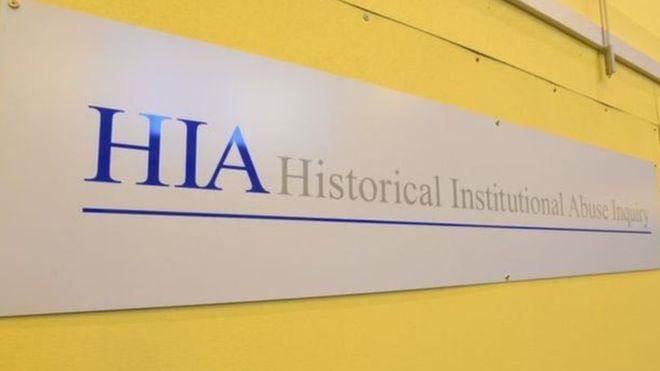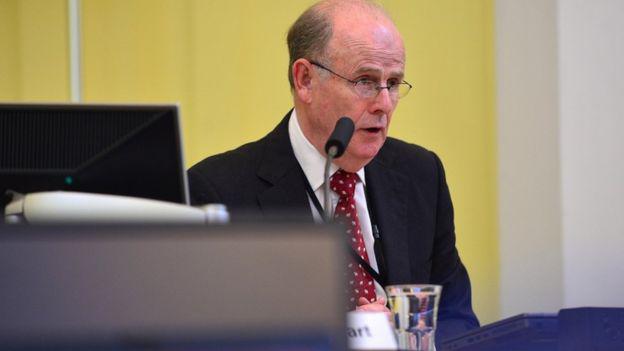|
Historical Institutional Abuse Inquiry: Questions remain as public hearings end
By Kevin Sharkey
Public hearings at the Historical Institutional Abuse Inquiry have ended after two and a half years. The chairman of the inquiry, Sir Anthony Hart, is due to hand over his report to Stormont by next January. The hundreds of testimonies of the past two and a half years at the inquiry have changed a chapter in the history of Northern Ireland society. Men and women, who were vulnerable children in care in Northern Ireland between 1922 and 1995, have come before the inquiry to give accounts of abuse in their childhood. They suffered the abuse while in the care of churches, the state and the charity Barnardo's. Some others were abused by notorious paedophile Fr Brendan Smyth. The children were sent into care for very many, and very different reasons. These included poverty, broken homes, and violence or abuse in their own family home. Many were also in care because their unmarried mothers were regarded as outcasts by a harsh and unforgiving Catholic Church of the era. Now middle-aged or elderly, the former child residents of care homes travelled to the inquiry from across the UK and Ireland. Many others gave evidence from around the world, particularly from Australia. Children in care in Northern Ireland were sent to the other side of the world as part of a child migration scheme between the UK and Australia. In many cases, children who were abused before they left Northern Ireland endured further abuse when they arrived in Australia. Now, all those who have come before the inquiry must wait until the final report is given to Stormont around the beginning of next year. Stormont ministers will then decide how to respond to a number of issues, including compensation. This will not be an easy task. The Executive will have to work out who pays compensation, who is entitled to it, and how much each person should get. These decisions will have to take account of the many different levels and types of sexual, physical and mental abuse as well as the cruelty endured by the children. 'Poignant'Therefore, the issue of compensation will have to be addressed in a manner that avoids the risk of creating a hierarchy of victims, by way of the payments they might receive. Another issue that will have to be considered is the fact that some claims of abuse have been vigorously challenged by institutions. So, should people who have made allegedly false allegations get compensation? There is also the fact that many people who have given evidence of abuse do not want money as compensation. Some just want a state apology, others have suggested a memorial to remind future generations of what happened to them. Some people want nothing. They told the inquiry they were happy to finally have their voices heard and now just want to get on with the rest of their lives. One particularly poignant aspect of the public hearings was that some people who were abused did not get the chance to have their voices heard. They died before and, sometimes, during the course of the inquiry. Some of them took their own lives, unable to cope with what happened to them as children. Some of the people who were abused as children died in destitution, their funerals having to be arranged and paid for by friends who knew and understood what they had endured in childhood.
|
.
Any original material on these pages is copyright © BishopAccountability.org 2004. Reproduce freely with attribution.

